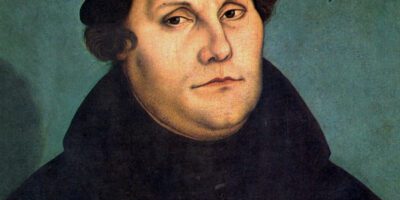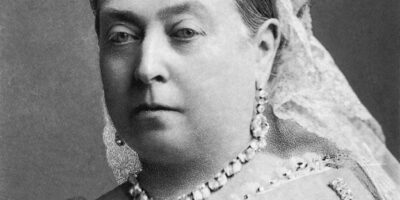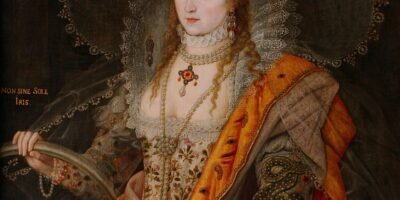
A photo of Gustav Knuth by Hans Krebs – Wikimedia commons
Top 10 Facts about Gustav Knuth
Gustav Adolf Karl Friedrich Knuth was born on 7 July 1901 in Braunschweig. He passed on on February 1, 1987, in Küsnacht, Switzerland. He was a German actor. After World War II he took Swiss citizenship.
Gustav Knuth received an international reputation in movies like; The Nurse King, The beggar student, You’re only young twice, Great Freedom #7, Under the Bridges, and many others. Knuth featured in more than 100 movies and TV shows. In the article are the top ten facts about Gustav Knuth.
1. He chose to be an actor over a locksmith

Gustav Knuth by Hans Krebs – Wikimedia commons
How often do our parents make our choices on the carers we should take after our basic education? How many of us ended up doing careers suggested by our parents? Is life easy with the career you were asked to take in your higher education easy?
Knuth’s father was called Christoph Karl Gustav Knuth, the Reichsbahn conductor, his mother was Johanna Friederike Luise Hermine Knuth, née Jürges. Knuth was urged by his father to do an apprenticeship as a locksmith after elementary school.
Knuth however, broke off this training and took acting lessons with the actor Casimir Paris in Braunschweig, financed by his sister Else. There is a possibility that the father could not pay for a course he did not give permission which is why Knuth’s sister offered to pay him school fees as an actor to become.
2. He received his first engagement at the Stadttheater Hildesheim
The Theater für Niedersachsen is a theater that was created by the merger of the Hildesheim City Theater with the Hanover State Theater in September 2007. At his mediation, he received his first engagement at the Stadttheater Hildesheim in 1918. This engagement was the most immediate after he finished his training as an actor.
After his first engagement at the Stadttheater Hildesheim, the Harburg City Theater followed from 1919 to 1922. Between 1922 and 1925 he played at the Stadttheater Basel, and from 1925 to 1933 at the Stadttheater Altona.
From 1933 to 1936 he worked at the Deutsches Schauspielhaus in Hamburg. From there he was engaged in the Prussian State Theater in Berlin, where he remained until 1945.
3. Knuth said that his best film is Under the Bridges
Under the Bridges is a German black and white feature film from 1944/45 modeled on European film movements of the time. It was filmed from May 8th to October 1944. The movie was directed by Helmut Käutner. It was released in 1946.
The movie plot is s follows; the fronts of the Second World War were already reaching Germany, in Berlin, Potsdam, and Havilland to the west of the German capital, and is set in the professional life of inland shipping. As a so-called defector film, it had its world premiere in July 1946 in Locarno.
4. Knuth was on the God-blessed list in 1944

Gustav Knuth photo by Hans Krebs – Wikimedia commons
The Gottbegnadeten-List was a list of German artists compiled in August 1944 in the final phase of the Second World War by the Reich Ministry for Public Enlightenment and Propaganda under Joseph Goebbels, who appeared important to the National Socialist regime and were therefore placed under special protection by it.
So, knut was on the God-blessed list of the Reich Ministry for Public Enlightenment and Propaganda in 1944. The Reich Ministry for Public Enlightenment and Propaganda (RMVP) was responsible for directing the content of the press, literature, fine arts, film, theatre, music, and radio in the National Socialist German Reich.
The ministry was re-established shortly after the National Socialists “ seized power ” as the central institution of Nazi propaganda.
5. British occupying power appointed him as a representative of cultural workers in 1946
The Ernannte Bürgerschaft in Hamburg was a body set up after World War II to control the Hamburg Senate. She was the predecessor of the elected Hamburg Parliament. Comparable appointed state parliaments were also set up in other federal states.
The British occupying Power appointed him to Hamburg’s appointed citizenship as a representative of cultural workers. In the first elections for citizenship in the same year, he ran as the top candidate of the Free Cultural Policy Association, but was unsuccessful and did not move into parliament.
6. Knuth became a member of the ensemble at the Zurich Schauspielhaus in 1949

An uploaded photo of Zurich Schauspielhausby Adrian Michael – Wikimedia commons
The Zurich Schauspielhaus is the largest theater in the city of Zurich. The large house is part of the peacock complex and has 750 seats. The Kammer studio stage for a maximum of 70 spectators is located in the basement of the building.
In the theatre, Knuth played together with Therese Giehse, among others. Friedrich Dürrenmatt wrote for Knuth the role of the scientist Beutler in his play The Physicists. This play was produced for television in 1964 by Fritz Umgelter with Knuth and Giehse in roles written especially for them.
7. In the 1950s Knuth played the role of wealthy people
Knuth played mainly wealthy, somewhat squat but mostly cheerful characters such as Duke Max in Bavaria in the Sissi trilogy. Duke Max in Bavaria was a duke in Bavaria and a member of the Palatinate-Zweibrücken-Birkenfeld-Gelnhausen sideline of the House of Wittelsbach. Only in the film Die Mücke was he exceptionally seen as a gun smuggler in a negative role.
8. Knuth was already the best among the rest as of the 1960s

A photo of Gustav Knuth by Hans Krebs – Wikimedia commons
With the success of television in the 1960s, Knuth tapped into a larger audience. In the role of veterinarian Dr. Hofer in the series All my animals, he quickly played his way into the hearts of his audience.
During the 1960s and 1970s, he was one of the most prominent German TV actors and played popular, good-natured characters in numerous films and series.
9. Big man – now what? was Knuth’s other big television success

A photo of Gustan Knuth by Hans Krebs – Wikimedia commons
Big man – now what? is a television series that was broadcast by ARD in 1967 and 1968. Factory director Heinrich König ( Gustav Knuth ) started small but is now a wealthy successful businessman and boss of the König Delicatessen company.
At the bottom of his heart, however, he has remained down to earth. He loves the local cuisine, especially his wife Marie’s bean stew. His family includes son Dieter, daughter Helga and adopted son Jürgen.
König has to manage problems in the company throughout the eight episodes and cope with some trouble. Not everything goes smoothly in the family either. In addition to Dieter, who tends towards the sweet life, Helga in particular causes quite a stir with her amours.
10. Knuth married twice in his lifetime
TOP 10 LITLE KNOWN FACTS ABOUT KEVIN MBABU
Gustav Knuth was married to Gustl Busch; their son Klaus Knuth who was born in 1935 and died in 2012, also became an actor. The marriage ended in divorce in the 1930s.
Knuth then married his colleague Elisabeth Lennartz. His granddaughter is the actress Nicole Knuth, who was awarded the Salzburg Bull in 2011 as one half of the stage duo Knuth and Tucek.
Planning a trip to Paris ? Get ready !
These are Amazon’s best-selling travel products that you may need for coming to Paris.
Bookstore
- The best travel book : Rick Steves – Paris 2023 – Learn more here
- Fodor’s Paris 2024 – Learn more here
Travel Gear
- Venture Pal Lightweight Backpack – Learn more here
- Samsonite Winfield 2 28″ Luggage – Learn more here
- Swig Savvy’s Stainless Steel Insulated Water Bottle – Learn more here
Check Amazon’s best-seller list for the most popular travel accessories. We sometimes read this list just to find out what new travel products people are buying.









